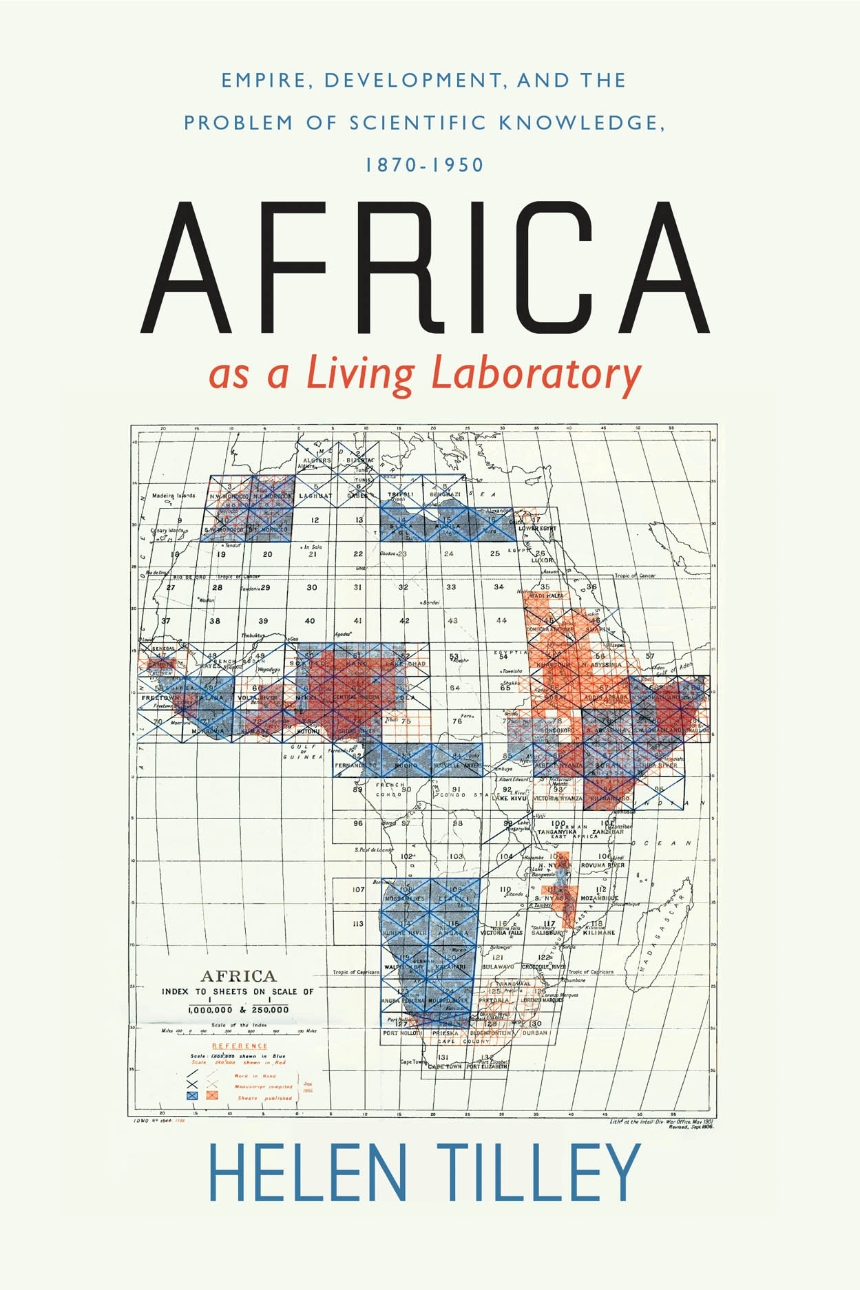Africa as a Living Laboratory
Empire, Development, and the Problem of Scientific Knowledge, 1870-1950
Africa as a Living Laboratory
Empire, Development, and the Problem of Scientific Knowledge, 1870-1950
Tropical Africa was one of the last regions of the world to experience formal European colonialism, a process that coincided with the advent of a range of new scientific specialties and research methods. Africa as a Living Laboratory is a far-reaching study of the thorny relationship between imperialism and the role of scientific expertise—environmental, medical, racial, and anthropological—in the colonization of British Africa.
A key source for Helen Tilley’s analysis is the African Research Survey, a project undertaken in the 1930s to explore how modern science was being applied to African problems. This project both embraced and recommended an interdisciplinary approach to research on Africa that, Tilley argues, underscored the heterogeneity of African environments and the interrelations among the problems being studied. While the aim of British colonialists was unquestionably to transform and modernize Africa, their efforts, Tilley contends, were often unexpectedly subverted by scientific concerns with the local and vernacular. Meticulously researched and gracefully argued, Africa as a Living Laboratory transforms our understanding of imperial history, colonial development, and the role science played in both.
520 pages | 8 color plates, 2 halftones, 8 line drawings, 48 tables | 6 x 9 | © 2011
Anthropology: Cultural and Social Anthropology
History: African History, British and Irish History
Reviews
Table of Contents
List of Illustrations
Acknowledgments
Introduction: Africa as a Living Laboratory
ONE / An Imperial Laboratory: Scientific Societies, Geopolitics, and Territorial Acquisitions
TWO / A Development Laboratory: The African Research Survey, the Machinery of Knowledge, and Imperial Coordination
THREE / An Environmental Laboratory: “Native” Agriculture, Tropical Infertility, and Ecological Models of Development
FOUR / A Medical Laboratory: Infectious Diseases, Ecological Methods, and Modernization
FIVE / A Racial Laboratory: Imperial Politics, Race Prejudice, and Mental Capacity
SIX / An Anthropological Laboratory: Ethnographic Research, Imperial Administration, and Magical Knowledge
SEVEN / A Living Laboratory: Ethnosciences, Field Sciences, and the Problem of Epistemic Pluralism
Appendix: African Colonial Service Employment, 1913–51
Notes
BibliographyAwards
Choice Magazine: CHOICE Outstanding Academic Title Awards
Won
Society for Social Studies of Science: Ludwik Fleck Prize
Won
